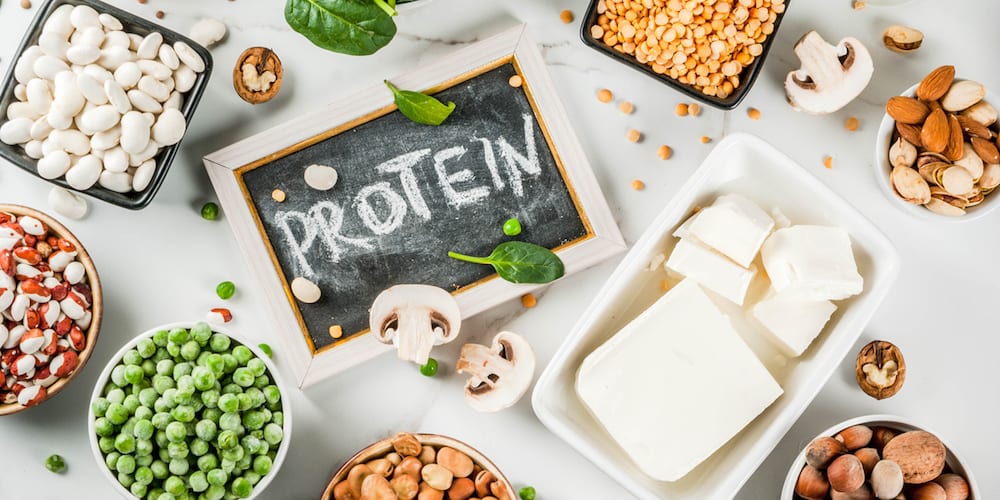Peas
Like other legumes such as peanuts, beans and chickpeas, green peas are a great natural protein source, and they’re particularly good for anyone allergic or sensitive to soy. Delicious and versatile, just keep a bag of peas in the freezer and you can put them into soup or toss them into a curry at a moment’s notice.
Lentils
The humble lentil comes in a variety of sizes and colours, and has long been a favourite in vegan cooking. Not only are lentils rich in protein, they’re also loaded with fibre to promote a healthy gut. You can use lentils to bulk up your favourite soups and pasta sauces, or fry them and add to salads for a bit of crunch.
Quinoa
Quinoa is considered a superfood and has such significant potential, the UN even declared 2013 to be the International Year of Quinoa! This gluten-free grain is a complete protein and rich in nutrients like calcium and iron. It’s also highly versatile. Use it as a salad base, or in the place of pasta or rice.
Tofu
Tofu is made from soybeans, which are a whole source of protein – meaning they provide your body with all the essential amino acids it needs. Tofu doesn’t have much taste, so you can dress it up wiht marinades and sauces, plus it makes a great base for stir-fries and curries. Or even add it to desserts!
Chia seeds
Low in calories, high in antioxidants, full of nutrients and rich in fibre and omega-3 fatty acids, chia seeds are a fabulously healthy protein source. Try sprinkling them on top of a plant-based yoghurt for breakfast, or soaking them in water or almond milk to make a chia pudding.
Chickpeas
These little legumes are protein powerhouses, as well as being packed with fibre and so versatile to cook with. Roast them in the oven for a crisp snack, or stir into your favourite Indian curry. You can even use hummus as a protein-rich alternative to butter on sandwiches.
Beans
Kidney, black, pinto, lima… whichever you choose, they’re all loaded with protein. In fact, beans are one of nature’s healthiest proteins, along with being convenient and often inexpensive. Use them to bulk up your everyday meals, or cook them into a classic Mexican curry.
Nuts
Whether it’s pistachios or almonds, walnuts or peanuts, nuts make the ultimate protein-rich snack. You can eat them on their own, but they’re also great to add to stir-fries and salads. They can be high in fat though, so make sure you consume various nuts in moderation.
Hemp seeds
Like chia seeds, hemp seeds are an easy and natural way to add protein to meals you already enjoy. They are also a whole source of protein. Try sprinkling over your morning muesli or blitzing into a smoothie for a healthy start to the day. You could even add them to a salad dressing.
Nutritional yeast
A deactivated strain of Saccaromyces cerevisiae yeast, nutritional yeast is a staple in many vegan diets and often found in natural food stores. It has a slightly cheesy flavour, which makes it perfect for stirring through mashed potatoes or sprinkling on pasta.
Spirulina
High in vitamins and iron, spirulina is blue or green algae that is available as a powder or a supplement. Noted for assisting with blood sugar levels, it can be added to water, smoothies or fruit juice – or just sprinkle it over salad or snacks to increase their protein count.
Seitan
A popular pick for vegans, seitan is a made from gluten, the main protein in wheat. It can be pan-fried, sauteed and even grilled, and closely resembles the look and texture of meat when cooked. However, seitan should be avoided by those with coeliac disease or gluten intolerance.







